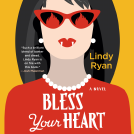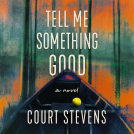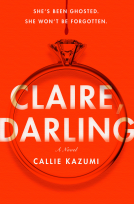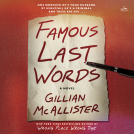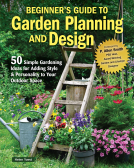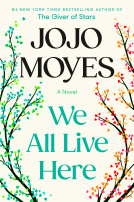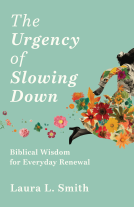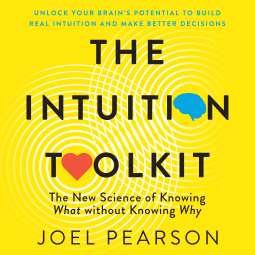
The Intuition Toolkit
The New Science of Knowing What without Knowing Why
by Joel Pearson
Narrated by Joel Pearson
This title was previously available on NetGalley and is now archived.
Buy on Kobo
Buy on Libro.fm
*This page contains affiliate links, so we may earn a small commission when you make a purchase through links on our site at no additional cost to you.
Send NetGalley books directly to your Kindle or Kindle app
1
To read on a Kindle or Kindle app, please add kindle@netgalley.com as an approved email address to receive files in your Amazon account. Click here for step-by-step instructions.
2
Also find your Kindle email address within your Amazon account, and enter it here.
Pub Date Jan 30 2024 | Archive Date May 11 2024
Simon & Schuster Audio (Australia) | Simon & Schuster Australia
Talking about this book? Use #TheIntuitionToolkit #NetGalley. More hashtag tips!
Description
Five easy rules for developing intuition, based on trailblazing research by a top Australian neuroscientist. Learn when it’s safe to rely on intuition in decision-making and when it’s not.
Intuition has saved lives and averted disasters, and it also lies behind countless innovative decisions. Steve Jobs, for one, regularly relied on his intuition in making business decisions at Apple.
Some people use intuition more readily than others but anyone can learn to develop and trust it. The key is ensuring that certain conditions are met so as to avoid the pitfalls. Neuroscientist Joel Pearson has identified five essential rules for using intuition, easily remembered by the acronym SMILE:
S: Self-awareness (Feeling emotional? Don't trust your intuition)
M: Mastery (Learn before you leap: why mastery matters for intuition)
I: Impulses and Addiction (These are not intuition)
L: Low Probability (Don’t use intuition for probabilistic judgments)
E: Environment (Use intuition only in familiar and predictable contexts)
In explaining these rules, Joel takes anecdotes from real life, including mountain climber Jon Muir’s lifesaving decision; a gameshow that uses humans’ innate misunderstanding of probability to rig its prizes; why you should never go rock-climbing on a first date; and what happens when Usain Bolt races in low gravity. The Intuition Toolkit is scientifically solid, highly readable and utterly fascinating.
Intuition has saved lives and averted disasters, and it also lies behind countless innovative decisions. Steve Jobs, for one, regularly relied on his intuition in making business decisions at Apple.
Some people use intuition more readily than others but anyone can learn to develop and trust it. The key is ensuring that certain conditions are met so as to avoid the pitfalls. Neuroscientist Joel Pearson has identified five essential rules for using intuition, easily remembered by the acronym SMILE:
S: Self-awareness (Feeling emotional? Don't trust your intuition)
M: Mastery (Learn before you leap: why mastery matters for intuition)
I: Impulses and Addiction (These are not intuition)
L: Low Probability (Don’t use intuition for probabilistic judgments)
E: Environment (Use intuition only in familiar and predictable contexts)
In explaining these rules, Joel takes anecdotes from real life, including mountain climber Jon Muir’s lifesaving decision; a gameshow that uses humans’ innate misunderstanding of probability to rig its prizes; why you should never go rock-climbing on a first date; and what happens when Usain Bolt races in low gravity. The Intuition Toolkit is scientifically solid, highly readable and utterly fascinating.
Available Editions
| EDITION | Other Format, Unabridged |
| ISBN | 9781761109614 |
| PRICE | A$27.99 (AUD) |
| DURATION | 4 Hours, 46 Minutes, 51 Seconds |
Available on NetGalley
NetGalley Shelf App (AUDIO)
Featured Reviews
 Bridget L, Book Trade Professional
Bridget L, Book Trade Professional
I thoroughly enjoyed The Intuition Toolkit. It provided thoughtful, well-organized insight into intuition, how it works in the brain, and when you should and shouldn't rely on it. I loved that it broke out all of the info so thoroughly, and that it didn't reiterate the same information over and over (something I find many self-help books do). Based in science, The Intuition Toolkit offers great advice and practical tips.



